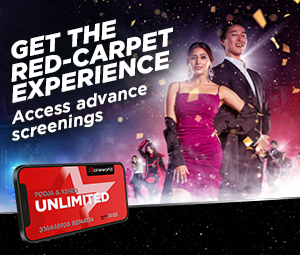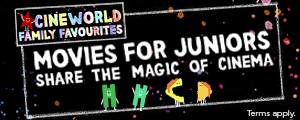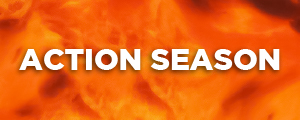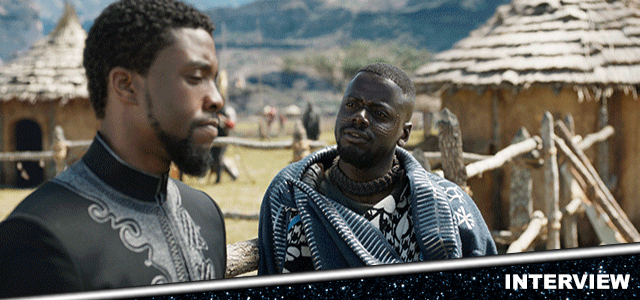
With just one day to go until Black Panther hits Cineworld, we're delighted to present our interview with the film's producer Nate Moore.
Directed by Ryan Coogler and starring Chadwick Boseman as the eponymous T'Challa, Black Panther is poised to break Marvel box office records around the world. We caught up with Nate to discuss the film's potential cultural impact, the importance of honouring the title character's heritage, and why now is the time for a black superhero.
So I thought I would start by talking about the impact Black Panther has already had. This includes breaking pre-sales ticket records for a Marvel movie. It's generated an extraordinary response not just in critic circles but outside of that, too. What's your reaction to how people have responded to it?
It's been great! But boy does it put extra weight onto the movie. As a filmmaker, you're always worried whether it's too much. The notion that this could build outside of a filmic audience and become a cultural phenomenon is something that, very early on, [Ryan Coogler] and I would talk about. Because the weight of that idea can be crushing and paralysing, you know? Because then you won't be thinking about servicing the story but rather this agenda, which we didn't want to do.
However, what I will say, and what is always heartening and surprising in a way, is just how personal this movie is. Just in terms of existing for people. You see the Twitter responses about what Black Panther means to a lot of people. You realise how underserved some people feel in terms of seeing themselves in cinema.
It's sad, because we feel we should have fixed this before, and it's also encouraging in that, hopefully, in this film, the audience will feel like there's something that speaks to them. But it's nothing we could have anticipated because really, all of this craze and talkback is so much more than we expected.
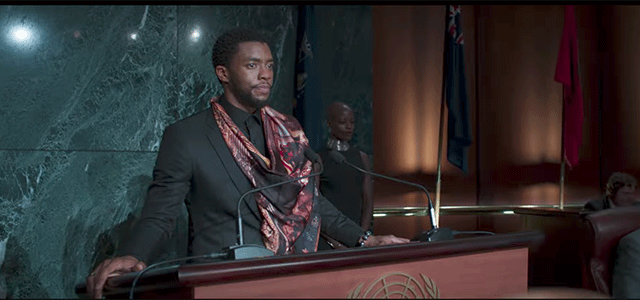
Well, continuing with that theme, would you agree that this isn't just a blockbuster but some sort of watershed moment in pop culture history?
I think so. It's one of those timing things that we couldn't have anticipated, nor did we, frankly. In making the movie, the outside world then started to have the same kind of conversation. And it's the kind of conversation that's always been going on, but hadn't really been made public until the last couple of years.
In the same way, Wonder Woman arrived at a time when people were looking for greater representation of women. In both cases, I would venture to say, as filmmakers, we were just trying to make a really cool story about these characters whom we found interesting. But now they're opening at a time when people are saying, 'This is exactly what we want.' Again, I think these characters highlight that there are groups who are under-represented. There are stories to be told that people want, and will embrace if you give it to them, even if, traditionally, these are the kinds of stories that have been passed over in favour of, say, a new Die Hard movie.
Don't get me wrong, I love Die Hard, but there's a lot of them, and not a lot of Wonder Woman or Black Panther. So there may be a watershed moment in which people respond positively to those movies, or even something like Pixar's Coco. They're about cultures that aren't necessarily on screen all the time, and as a result they feel fresh.
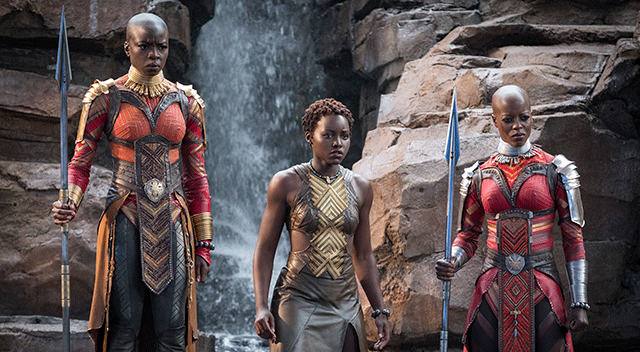
Black Panther is famously the first ever black superhero in the comic medium, and you mentioned the expectation on the production earlier. What was the pressure to deliver not just a fun rollercoaster ride, but also to live up to the character's remarkable heritage?
Yeah, I mean at Marvel, we put pressure on all of our movies to be really good. Especially because we pull from really rich source material that's been around for a good 50 to 60 years. We always want to do right by them. What's amazing to me, again through having these conversations, is that when you think about Jack Kirby and Stan Lee introducing this particular character, it was in 1966. Like, oh my God. So we'd better be able to do it as good as they did it because, man, they really blazed the trail.
I also think it's an important distinction that he's not just the first black superhero, but the first African superhero. That's another thing indicative of how the media often looks at the world. The notion that the continent of Africa could have the most technologically advanced and, by proxy, the richest nation in the world is mindblowing, because very often our interpretations of Africa are more towards the impoverished country. Africa as a place that has been colonised or taken advantage of. Even back in 1966, the notion of Wakanda was mindblowing.
As filmmakers, Ryan and Joe Robert Cole, the co-screenwriter, wanted to ensure we were building off the back of the best of what Marvel publishing had done. It was important to pay respect to that because if we had made a lesser movie, that would have done the entire property a disservice.
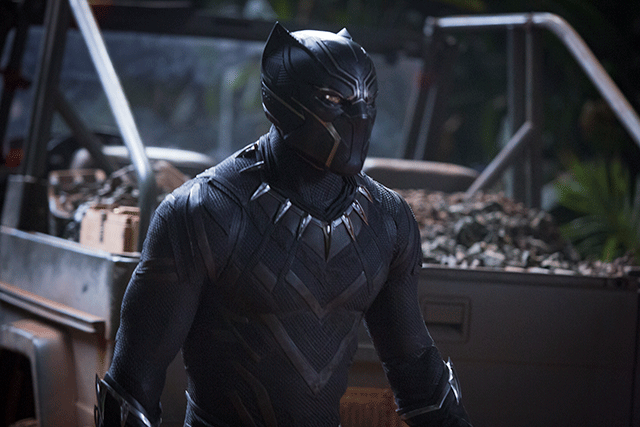
One thing that really impressed me is Black Panther demonstrably feels like a Ryan Coogler film. There are characteristics of both Creed and Fruitvale Station, albeit on a much grander scale. How has Marvel evolved in terms of allowing filmmakers to impart their own personality on a project?
I think it's about getting into characters that are less well-known, so you have a bit more latitude to play with. I think if you look at Taika Waititi, if you look at Ryan Coogler, you look at Jon Watts, James Gunn, even the Russo brothers – they were all taking on characters who weren't necessarily Iron Man. In a way, actually, I would argue Iron Man 1 and 2 are distinctly Jon Favreau movies, just in terms of tone and dialogue.
But finding filmmakers that have a personal stake in the films – we've found that has a made a big difference. Even in the first couple of conversations I had with Ryan, it was clear there would be a personal connection to this that another filmmaker may not have. I think that just leads to better stories and I think we have become smart and savvy enough to know when to back off and say when something is great.
We observe that it's different from what we usually do, but it's great nonetheless. Let's help the filmmaker execute that vision and we'll help them deliver something that maybe isn't in their wheelhouse. But because that story is so personal, it's emotionally affecting for the rest of us, so why not?
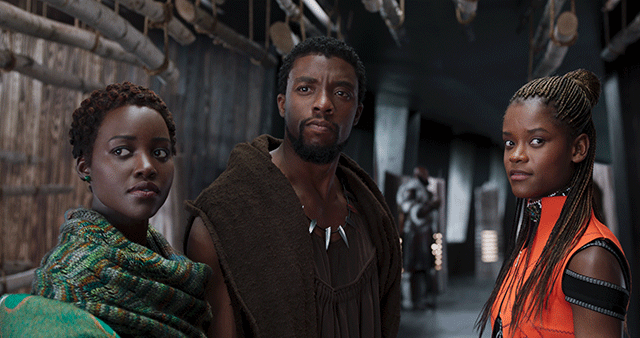
You mentioned emotions there, and so much of this film rests on Chadwick Boseman's performance as T'Challa. Having first been introduced as a character in Civil War, what was it like for you watching him grow into this iconic character?
It was pretty cool. Chad in Civil War felt like he was doing a lot of heavy lifting. Because Panther in that movie is surrounded by a lot of other Avengers. Joe and Anthony Russo, writers Chris and Steve and I were trying to figure things out like how does Giant Man work and so on. Wakanda wasn't the thing that was on our mind the most, so Chad had to be really imaginative and say the lines while imagining the backstory in his head, bringing it to the set every day.
So he did and was fantastic. I remember a couple of times on that film being in his trailer and he was like, "What's going on with this?" [laughs] To which I would respond, "Great question! Thanks for asking!" So now we can devote all of our energy to answering those inner questions. It was really fun to explore and I think that allowed Chad to just perform.
Now that he's not having to do the math as to how Wakanda works, it allows him to do and be certain things. I know he's one of the most dedicated actors we've ever had. He just wants to get it right. Sometimes that meant slowing down production and asking tough questions that would make us rewrite things, but he was so passionate about portraying T'Challa in a way that felt genuine and organic. Again, it's something that people in Africa can go, 'That is us.' I can't say enough good things. He's just so talented.
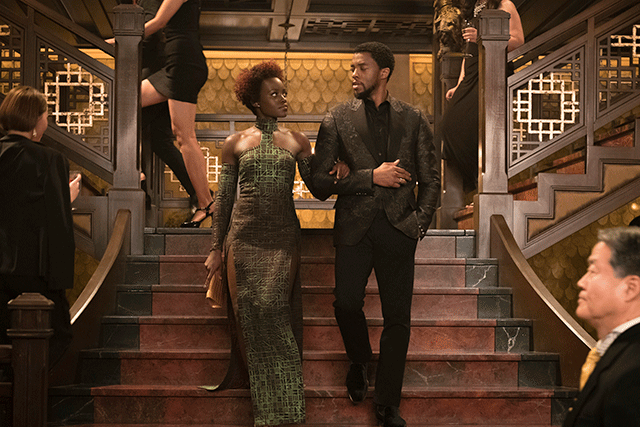
There's also a fantastic supporting cast. The standouts for me were Letitia Wright and Michael B. Jordan. How important were they in terms of fleshing out this landscape?
They're really important. We knew going in they were important but they came to us in different ways. Mike came to us through Ryan because they already have such a great relationship. It was important for Ryan to have someone he trusted in the role of Killmonger, someone he knew would get it right. Because in a lot of respects Killmonger is a very personal character for Ryan, because he's from Oakland and there's a lot of similarities to the things Ryan has seen and experienced.
Mike was up to the challenge of this, and again to have somebody like that, who has such a different energy to that of Chad, both as a performer and as a person... When they were on set together, those days were the most electric. They would approach it from such different directions.
Letitia was different in that we knew she was important, but we didn't know who Shuri was. So we did a pretty extensive casting search and read a lot of very talented actresses, and Letitia came back repeatedly. She always had the best dramatic chops, I'd say, but what was magic was her chemistry with Chad. We realised that there was one person in the readings who would cause Chad to light up. It was always a bit more lively, and you see it in the film.
It's that unnameable thing they just have, that felt like brother and sister. A lot of Marvel heroes do not have family around them. So many are isolated. You start talking about it – the parents are either dead or gone, there may be an on and off girlfriend, but T'Challa is, I think, the first on-screen superhero to have a sister. There aren't very many brother-sister dynamics in recent movies. Ryan and I would always talk about that. There's You Can Count On Me, The Skeleton Twins... but what else?
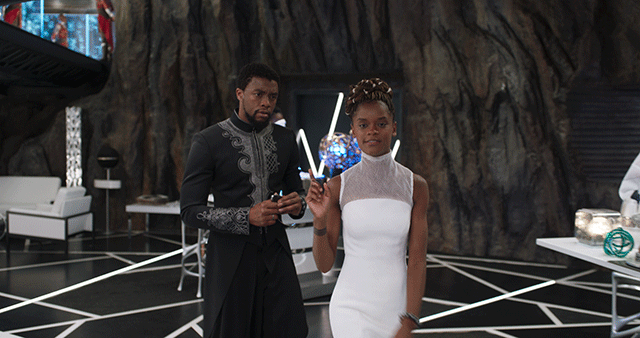
That's exactly what I thought when I was watching the film! I thought how refreshing to have a sibling duo at the centre of it.
Yeah, and it made for fun chemistry. I think making Shuri smarter than T'Challa was cool. Letting her give him some grief, and getting him to take it, was cool, because it makes him more human. He can take a joke, even if it's at his expense. At the same time, we like her because she's smart and funny. And when push comes to shove, she can get out on the battlefield and kick some butt.
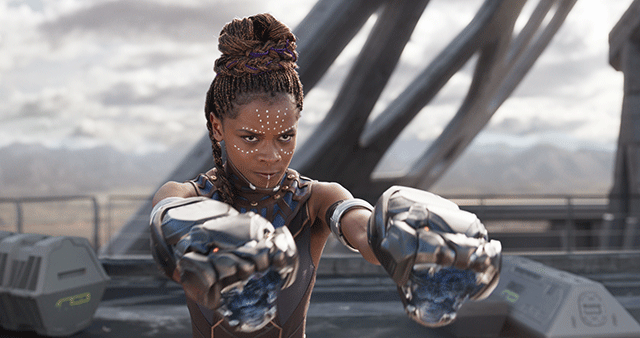
Definitely. You mentioned the days when both Chadwick Boseman and Michael B. Jordan were on set together. There's an interesting ideological clash in the movie between T'Challa's traditional tribal heritage and the millennial, contemporary angst of Killmonger. Was that always at the forefront of the creative process?
Yes, we always knew we were driving towards that. And it was always our intent to let that unfold in a way that didnt feel expected. We had to throw a couple of elements in there to muddy the water a little bit, so you didn't realise until it was actually happening that the story is about these things.
We liked the notion that each character would affect how the other saw the world. A lot of the time, we have a hero and villain and they're diametrically opposed, they don't ever talk, they never agree and then somebody dies. What I think is interesting about our film is the characters are still diametrically opposed, they're still at odds, but there is a learning that happens between the two men, which I think is what makes it so interesting. Hopefully it feels different from what you expect.
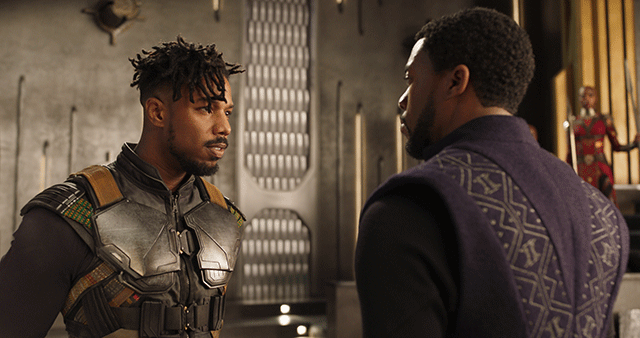
On that last point, I'm a big film score fan and I loved what this film did with the music, in terms of Ludwig Goransson's score and also the Kendrick Lamar influence. How do you feel this pushes Marvel forward musically?
It was again a testament to Ryan that he wanted Ludwig on very early. I don't want to get too much into the process but a lot of the time you have temp tracks, backing tracks and so on, but ultimately the narrative was always unfolding to Ludwig's score.
He made it his mission to only use African instruments so that it felt real. There are countless numbers of different types of drums, for instance, because that's what's found in Africa. To Western ears we have, like, three drums: the bass, the snare and whatever. Again, that attention to detail sonically was really interesting. This also extended to the use of flutes and guitars, which again, to my ear, sound like Western instruments. But Ludwig pointed out the instrument where all that comes from, and you realise how much has come from Africa, sonically.
It's the origins of all these things that we've taken for granted. In the same way that James Gunn's soundtrack choices on Guardians of the Galaxy kind of defined the sound of that franchise, I think Ludwig and Ryan have done a great job defining the musical signature of Black Panther. If we're lucky enough to do a sequel, we'll be sure to expand on that idea.
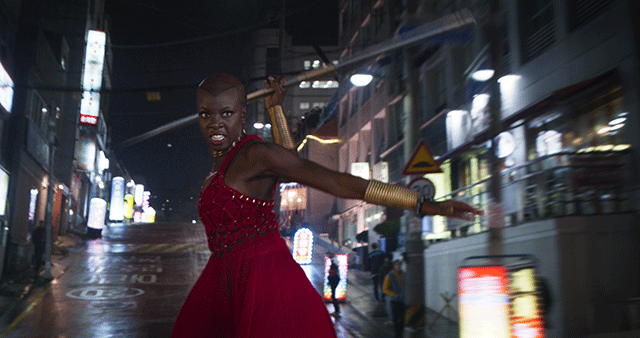
The movie's also got real humility. It's funny - like properly, Guardians-level funny. How important is that in terms of grounding everything?
[laughs] It's interesting. Guardians is built as a comedy. Black Panther was always built as a drama, but we knew we needed those moments of levity as a release valve for the audience. So you're not just gripping your seat for two hours, because that experience can be taxing, right?
Weirdly, we've always been concerned that this film would be our most serious to date, and in a thematic sense it is. But even in test screenings, we were surprised by how much people were laughing. Page to page, it has way less jokes than any other Marvel movie. But functionally, experientially, it's funnier than most of our films.
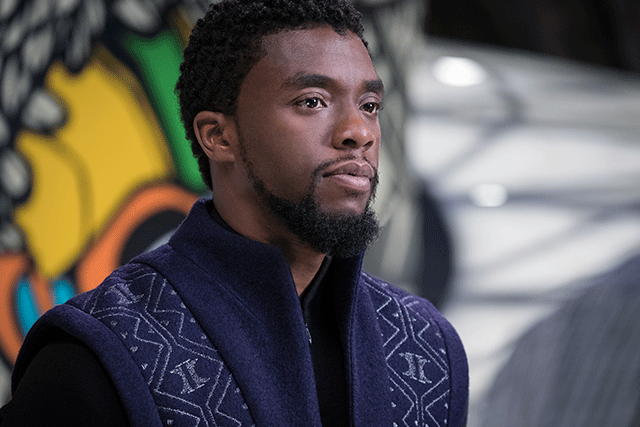
To finish up, bearing in mind the conversations that are engulfing Hollywood at the moment, why do you think it's taken so long for a film like Black Panther to emerge and restore that sense of balance in its racial and gender representation?
I don't think of Hollywood as a place that is inherently sexist or racist. But it is very much commercial. It's always about what will work commercially. It's interesting that both Wonder Woman and Black Panther are within franchises that are known. Panther is a character under the Marvel studios umbrella, which after 18 movies has established a certain level of trust. So we can take that chance, knowing that our audience is willing to take that journey, and we're also going to have the visibility as a big movie.
As long as we get it right and deliver a piece of entertainment, that is a barrier we can surmount. My hope is that should we be successful commercially, other studios will follow suit. That they'll realise a black cast can travel. There's always a myth that these things don't work. That's because studios don't try. If we at Marvel can be the test case proving it can work, others can try out their own version of Black Panther and send it to places like China.
I think, oftentimes, we underestimate what audiences want to see. We think they won't want to see a certain thing. Yeah they will! Coco? Wonder Woman? If it's good, it's good, and they'll want to see it. Again, if we've done our jobs as filmmakers, my hope is that the likes of Universal, Paramount and Sony will realise they need a Black Panther also. I'd rather be in the fight competing with eyeballs on our own movie, than our movie be the only one ever.
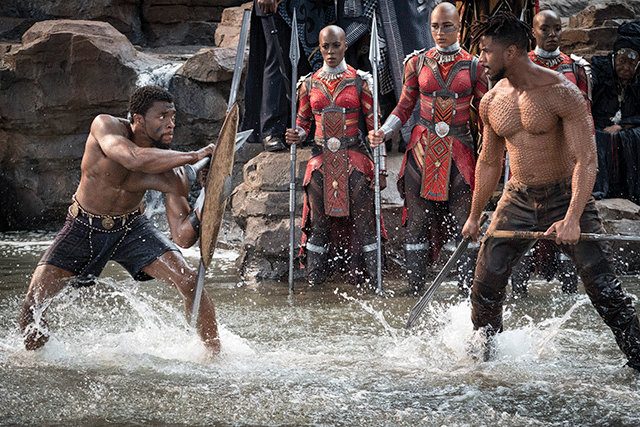
Click here to book your tickets for Black Panther, opening on 13th February.
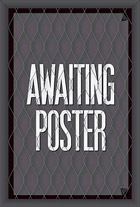
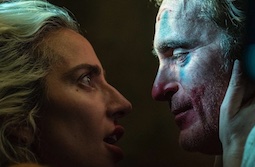
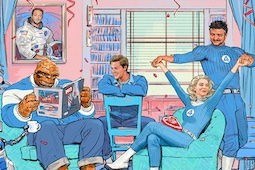
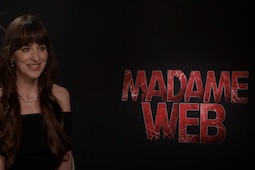
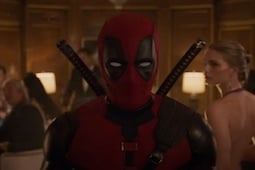
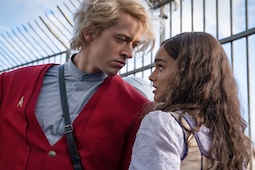
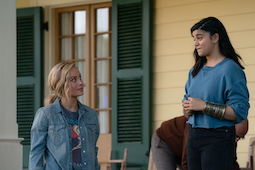
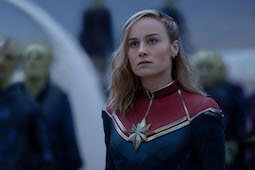
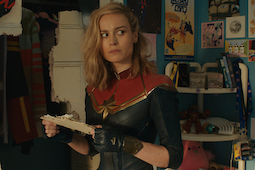
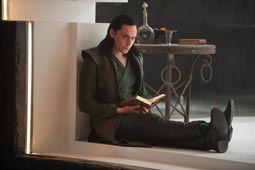
.jpg)
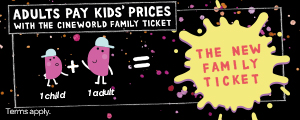
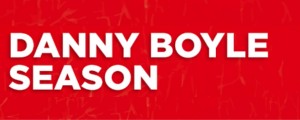
.jpg)
.png)

